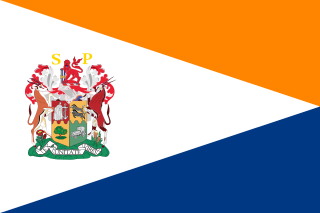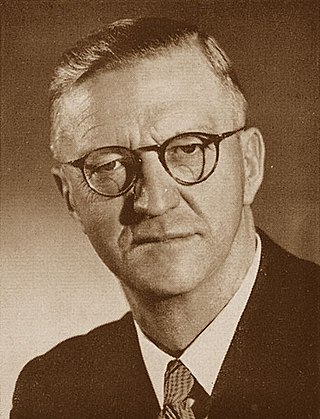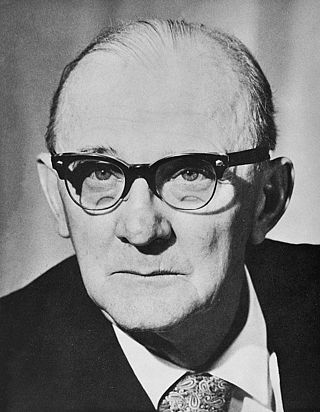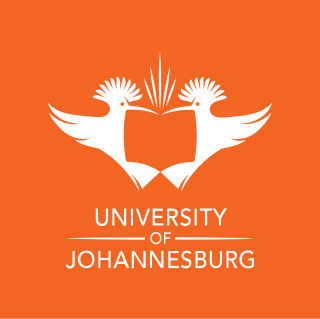
The South African Republic, also known as the Transvaal Republic, was an independent Boer republic in Southern Africa which existed from 1852 to 1902, when it was annexed into the British Empire as a result of the Second Boer War.

Stephanus Johannes Paulus Kruger was a South African politician. He was one of the dominant political and military figures in 19th-century South Africa, and State President of the South African Republic from 1883 to 1900. Nicknamed Oom Paul, he came to international prominence as the face of the Boer cause—that of the Transvaal and its neighbour the Orange Free State—against Britain during the Second Boer War of 1899–1902. He has been called a personification of Afrikanerdom, and remains a controversial figure; admirers venerate him as a tragic folk hero.

The State President of the Republic of South Africa was the head of state of South Africa from 1961 to 1994. The office was established when the country became a republic on 31 May 1961, albeit, outside the Commonwealth of Nations, and Queen Elizabeth II ceased to be Queen of South Africa. The position of Governor-General of South Africa was accordingly abolished. From 1961 to 1984, the post was largely ceremonial. After constitutional reforms enacted in 1983 and taking effect in 1984, the State President became an executive post, and its holder was both head of state and head of government.

Johannes Gerhardus Strijdom, also known as Hans Strijdom and nicknamed the Lion of the North or the Lion of Waterberg, was the fifth prime minister of South Africa from 30 November 1954 to his death on 24 August 1958. He was an uncompromising Afrikaner nationalist and a member of the largest, baasskap faction of the National Party (NP), who further accentuated the NP's apartheid policies and break with the Union of South Africa in favour of a republic during his rule.

Charles Robberts Swart, nicknamed Blackie, was a South African politician who served as the last governor-general of the Union of South Africa from 1959 to 1961 and the first state president of the Republic of South Africa from 1961 to 1967.

Jacobus Johannes "Jim" Fouché,, also known as J. J. Fouché, was a South African politician who served as the second state president of South Africa from 1968 to 1975.

The University of Johannesburg (UJ) is a public university located in Johannesburg, South Africa. The University of Johannesburg came into existence on 1 January 2005 as the result of a merger between the Rand Afrikaans University (RAU), the Technikon Witwatersrand (TWR) and the Soweto and East Rand campuses of Vista University. Prior to the merger, the Daveyton and Soweto campuses of the former Vista University had been incorporated into RAU. As a result of the merger of Rand Afrikaans University (RAU), it is common for alumni to refer to the university as RAU. The vice-chancellor and principal of UJ is Professor Letlhokwa George Mpedi who took office on 1 January 2023. Between 2018 and 2022, UJ's vice-chancellor and principal was Tshilidzi Marwala.

Francis William Reitz, Jr. was a South African lawyer, politician, statesman, publicist, and poet who was a member of parliament of the Cape Colony, Chief Justice and fifth State President of the Orange Free State, State Secretary of the South African Republic at the time of the Second Boer War, and the first president of the Senate of the Union of South Africa.

Mahlamba Ndlopfu is the chief official residence of the President of the Republic of South Africa. The head of government has made it their official home since 1940 and it is located in the Bryntirion Estate in Pretoria.

Sir Cornelius Hermanus Wessels was a South African statesman.

Johannes "Jan" de Klerk, was a South African politician. He was the father of F. W. de Klerk, the last apartheid State President of South Africa.
Barend Jacobus du Plessis is a South African retired politician and a former member of the now-dissolved National Party, as well as Minister of Finance in 1984–1992.
The Minerals Council South Africa is a South African mining-industry employer organisation. Its members include famous South African mining houses such as Anglo American, De Beers, Gold Fields and Harmony. In its current form, it was founded in 1968 as the Chamber of Mines, a South African wide organization. Prior to that year, it has its early origins as the Transvaal Chamber of Mines in 1887, then evolved over many years reforming as the Witwatersrand Chamber of Mines in 1889, the Chamber of Mines of the South African Republic from 1897, Transvaal Chamber of Mines from 1902 and lastly from 1953 until 1967 as the Transvaal and Orange Free State Chamber of Mines. On 23 May 2018, the South African Chamber of Mines rebranded themselves as the Minerals Council South Africa.

The Vice State President of the South African Republic was the second highest political position in the South African Republic.
Jan Eloff was the first civilian commissioner and the second mining commissioner in Johannesburg and the man to whom Eloff Street was named after, the first street to be surveyed. In time, twelve streets in the Greater Johannesburg area were named after him.

The Johannesburg Reformed Church was the first congregation of the Dutch Reformed Church in South Africa (NGK) to be founded in Johannesburg on August 14, 1887. All the congregations on the Witwatersrand stem from it, but by the 2010s, the NGK yearbook recorded only 90 in its ward which had long ceased to operate independently.
The Johannesburg North Reformed Church/Andrew Murray Congregation is a bilingual congregation of the Dutch Reformed Church in South Africa (NGK) in the Johannesburg suburb of Orchards. It was formed in 1999 by the merger of the NGK congregation and the Andrew Murray Congregation and functions as a church without borders.

The Langlaagte Reformed Church was the 28th congregation of the Dutch Reformed Church in South Africa (NGK) on the Transvaal and the second in Johannesburg after the Johannesburg Reformed Church (NGK) (1887). The congregation is well known as the spiritual home of the Langlaagte orphanage, later named the Abraham Kriel Children’s Home after Rev. Abraham Kriel, who founded it as pastor of Langlaagte.
Johannes Petrus Meyer was a politician, member of the Volksraad of the South African Republic, mining entrepreneur, and farmer; he is the man for whom Meyerton and Meyersdal are named.
Cornelis Johannes Bodenstein was a former member of the executive council and Vice State President of the South African Republic and president of the parliament, Volksraad.













